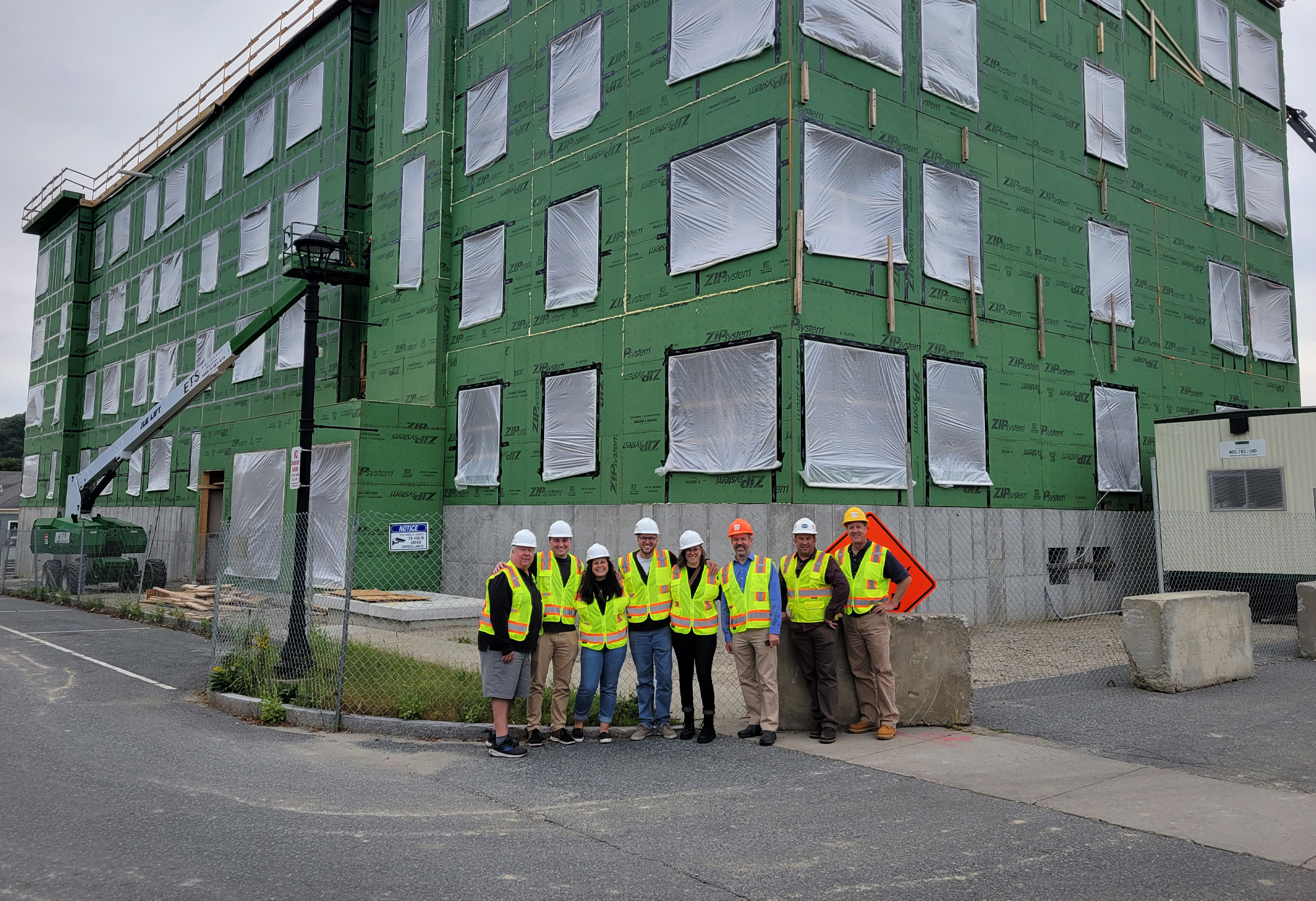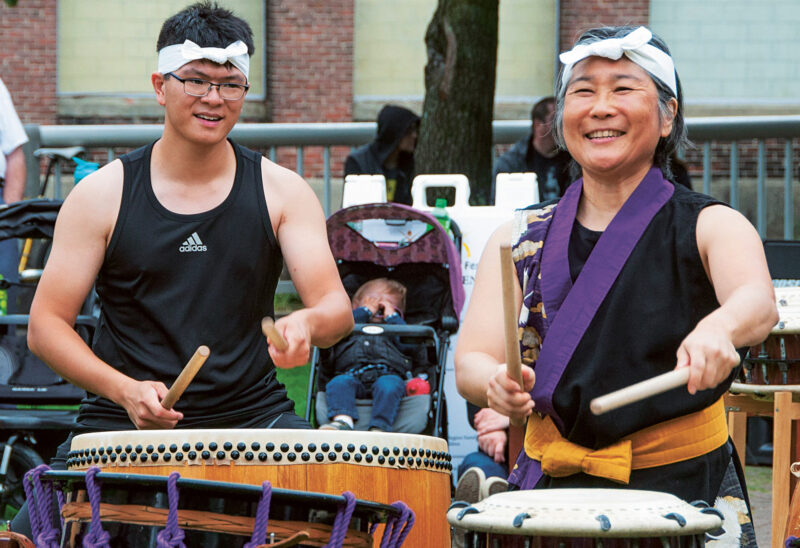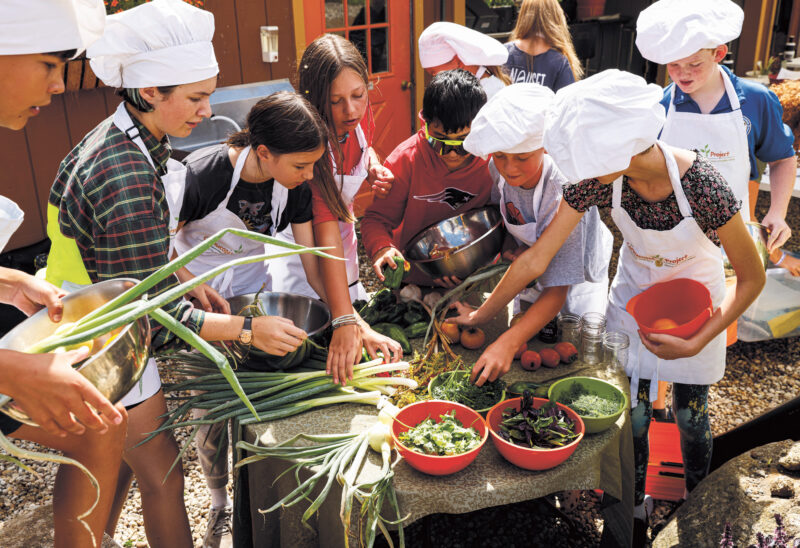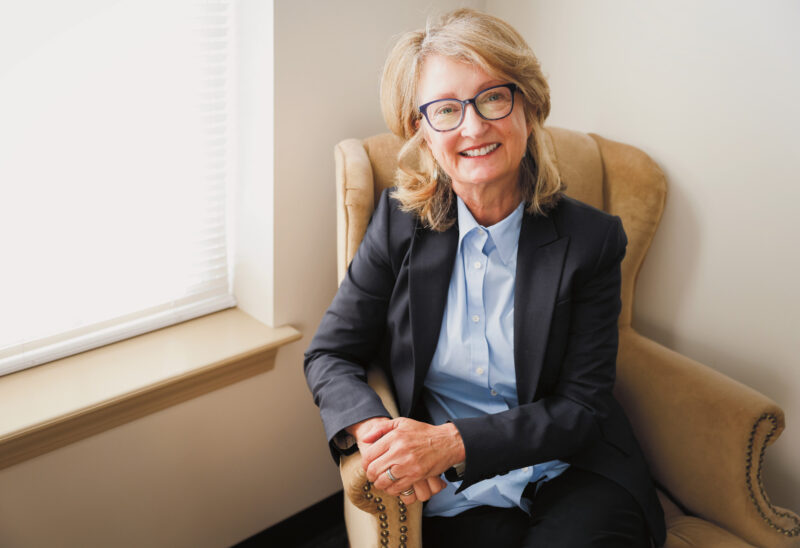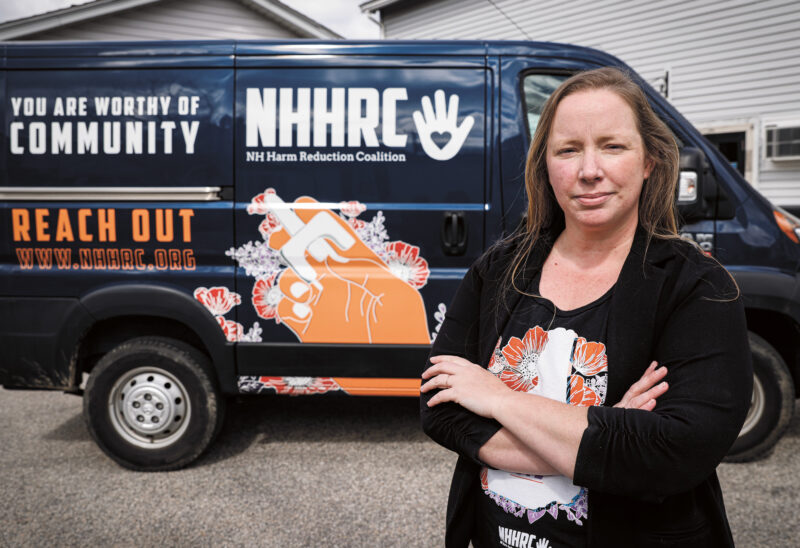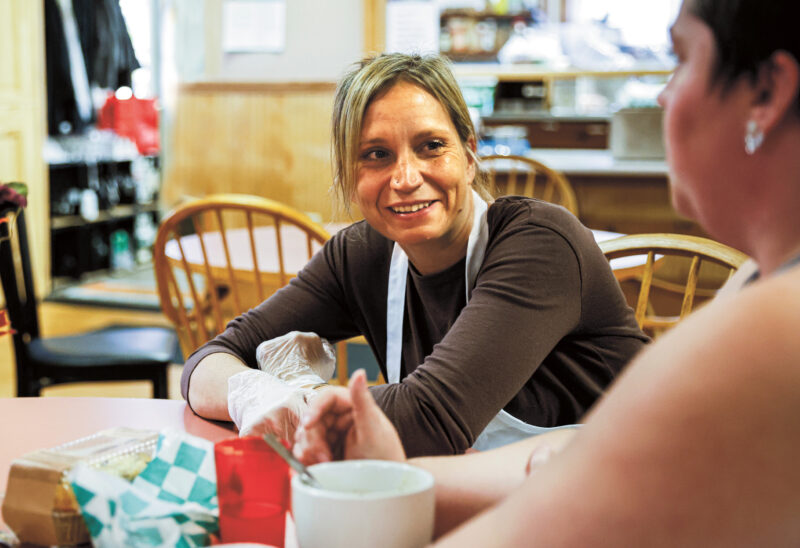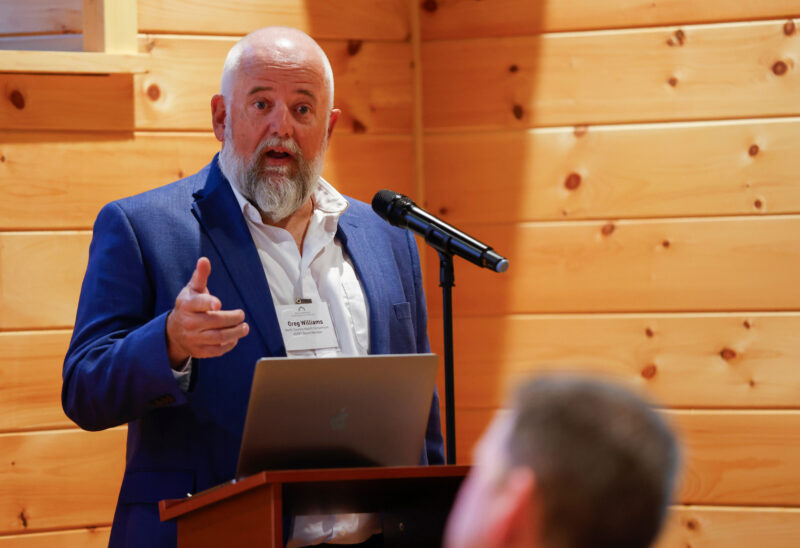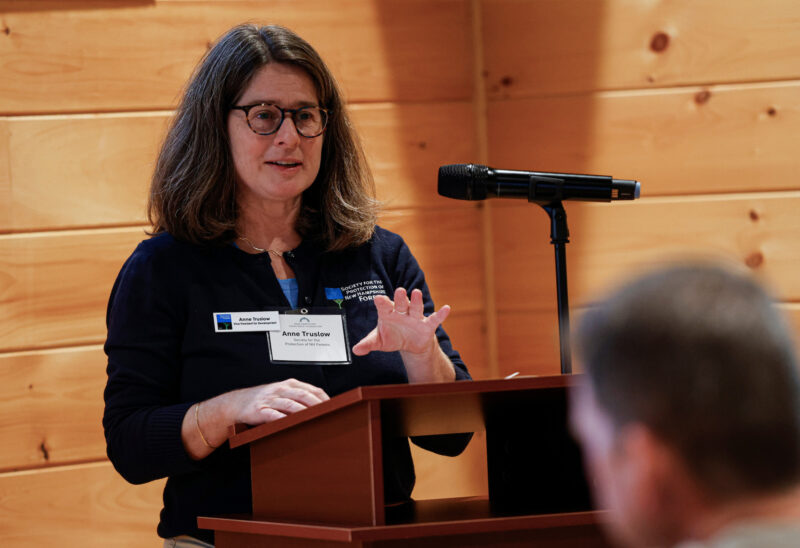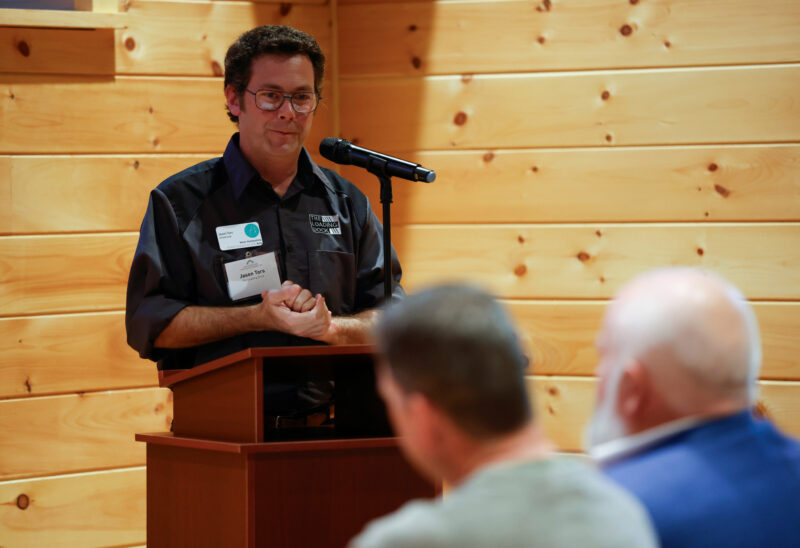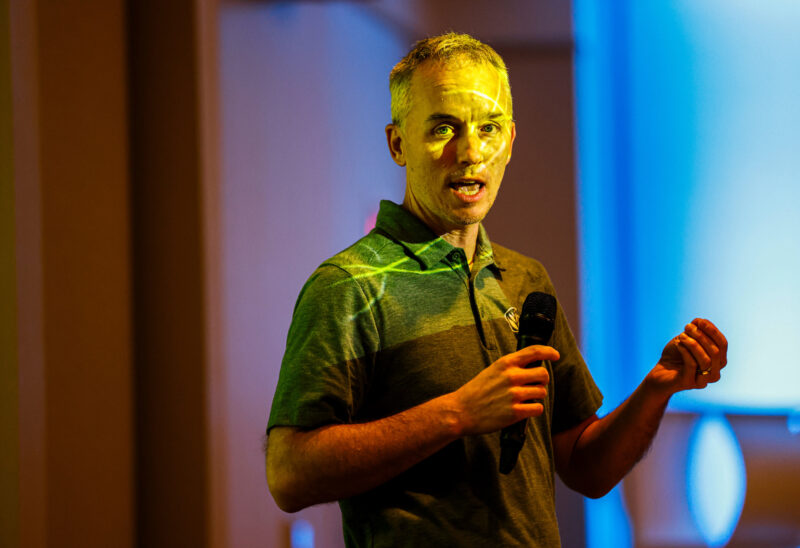A new housing development is going up on the banks of the Connecticut River in White River Junction, Vermont. The 42 new units of affordable housing are in walking distance from family and veterans’ services, and close to bus stop. They are slated to be occupied this year.
In Lebanon, NH, a childcare classroom is able to stay open despite a teacher being out sick. A trained substitute is available because the Early Childhood Association of the Upper Valley created a program to train and deploy substitute providers – who have logged more than 1,000 hours of work that has helped keep centers open and parents able to work.
In Quechee, Vermont, Global Village Foods is producing ready-to-eat African-inspired cuisine for sale in markets and to food-service suppliers, while using at least 30 percent locally grown ingredients.
A new climate action framework for teachers and students is set to be deployed in schools across the Upper Valley region to engage students in research, scholarship and action in local communities.
One commonality is clear – all of those projects, in one way or another, are making the Upper Valley community stronger and more connected, and helping people in the region to thrive.
The less-apparent commonality is that each of those projects was touched, in one way or another, by the nonprofit organization, Vital Communities. And they represent just a small sample of what the organization works on.
Founded in 1993, Vital Communities was an outgrowth of the work of the local League of Women Voters. League members recognized that many community issues were not going to be decided at the ballot box, but required the grassroots efforts and connections of people across sectors and across the region. As a result, Vital Communities was founded. Its mission today: to engage “Upper Valley people, organizations and communities to create equitable solutions to our region’s challenges.” Vital Communities serves 69 towns on both sides of the Connecticut River in New Hampshire and Vermont, with Lebanon, Hanover and White River Junction at the core.
The Vital Communities team of 17 is headquartered in White River Junction and works on an array of program areas and projects, from transportation to energy efficiency to housing, leadership development, early childhood education, economic development, local food production and more.
“We are not just an organization, we are a movement with collaboration at the heart of our work,” said Sarah Jackson, executive director of Vital Communities.
The Charitable Foundation has been a supporter of Vital Communities since its early days. Vital Communities’ work touches many sectors and interconnected areas of needs – and the organization often serves as the bridge between the nonprofit, business and public sectors.
“They are so broadly engaged. They touch on every component of a community,” said Lori Hirschfield, Director of the Department of Planning and Development for the town of Hartford, VT. “We work with them on all of the pieces – agriculture, transportation, energy housing, economic development. All of those things they have a role in, because those are all the things that make up ‘vital communities.’ And they are a convenor, bringing together communities on both sides of the river.”
The Riverwalk housing development is being funded in part by the Upper Valley Housing Fund, which grew from the Corporate Council – a consortium of local business leaders convened by Vital Communities. The Housing Fund now totals almost $11 million in investments from local employers. Once completed, Riverwalk will be owned by Twin Pines Housing Trust and Evernorth, both nonprofit housing organizations, and managed by Twin Pines.
The childcare substitute pool sprung from a partnership and effort that included Vital Communities bringing people to the table – providers, parents, business people public officials – to assess the problem and develop local solutions.
Global Village Foods was one of many local businesses boosted by “Upper Valley Everyone Eats,” a program managed by Vital Communities that matched local restauranteurs with local food producers and used federal pandemic-relief aid and engaged local social service agencies and volunteers to get the meals to people in need.
The new equity-focused climate curriculum, produced by the nonprofit Shelburne Farms in partnership with PEER Associates, benefitted from Vital Communities’ staff input made possible by the Wellborn Ecology Fund. The toolkit emphasizes community partnerships, connection to place – and hope.
“Our dream is that students are able to address some of their climate anxiety through action and they are able to see that they can make a difference,” said Joan Haley, climate change education specialist at the Institute for Sustainable Schools at Shelburne Farms.
Additional Vital Communities efforts include “The Local Crowd Upper Valley,” a crowdfunding program that has raised more than $380,000 for 20 campaigns from more than 2,600 supporters since launching in 2019. The program has helped boost a local bakery that employs people with differing abilities; and has assisted projects in local food production and access, outdoor recreation access, Covid relief and more.
Crowdfunding is a kind of communal care.
“We live in an unbelievably individualistic culture,” said Alana Redden, a Vital Communities project manager who works on The Local Crowd. “The more that we can practice thinking of ourselves as deeply entwined in a collective and a community and ask ourselves ‘how does taking care of ourselves also mean taking care of the people around us?’ — that will benefit all of us. This is a tangible way to do that.”
Ultimately, all of Vital Communities’ work is about drawing on the talents and resources in communities to address shared challenges – no matter how complex.
“We can find common ground when we come together around challenges,” Jackson said. “We may not agree with one another on everything, but we can think through issues and listen to one another.”
And that small, profound act, repeated over years and across issues, boosts the vitality of communities.

